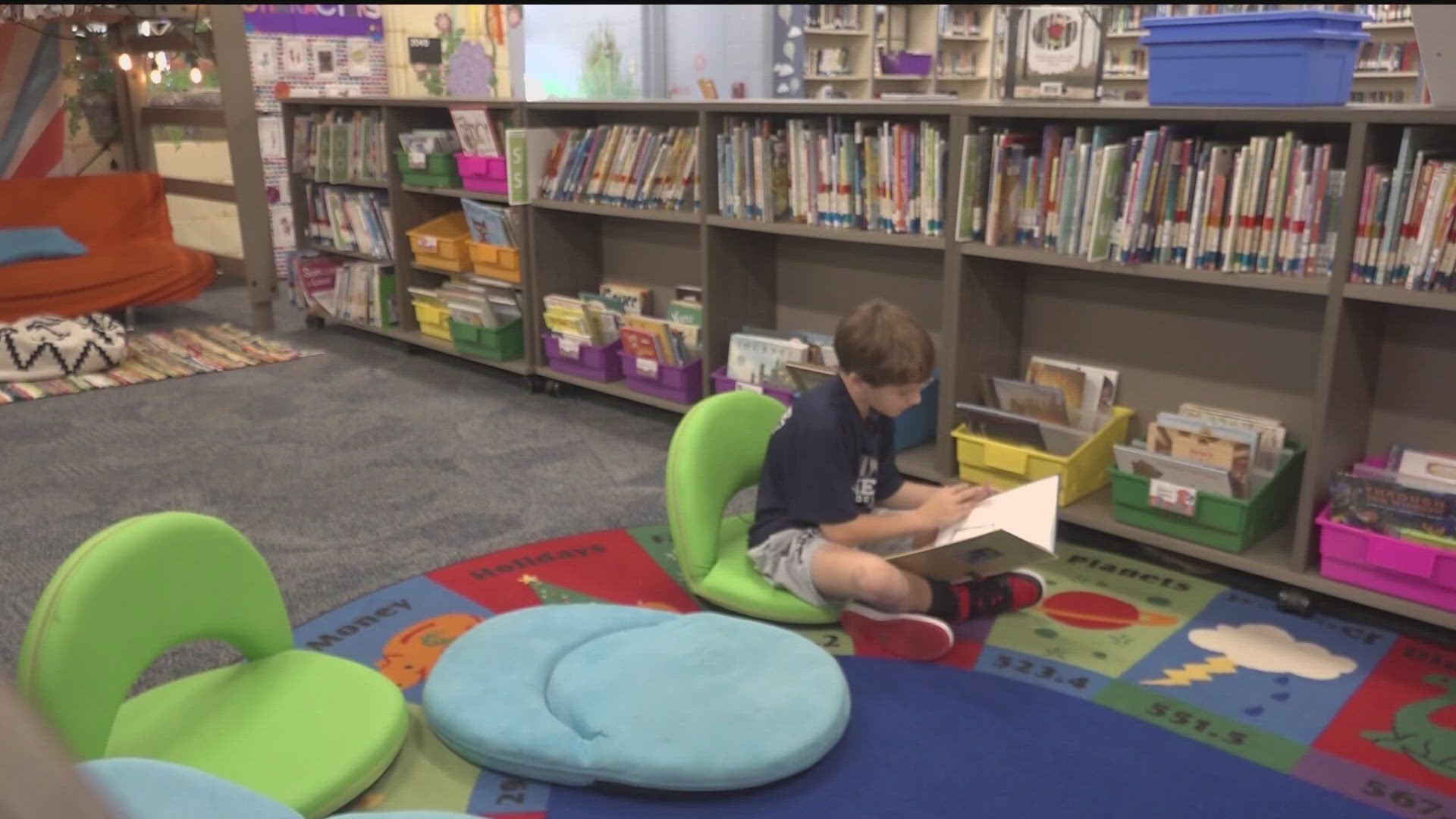MARIETTA, Ga. — Nicara Partlow has a lot to celebrate. Her son just finished an undefeated season on the soccer pitch, and her seventh-grader met the challenge in the classroom, too.
"He's a grade ahead," Partlow said. "Also, he's taking honors and advanced classes and he's excelling in all of them. They have challenged him in a lot of ways I don’t feel some of the other schools systems maybe have gotten to the level of challenging him.”
Partlow moved her son to Marietta City Schools a couple of years ago and has noticed a difference in his learning. The school district implemented the Science of Reading program from Kindergarten through fifth grade three years ago. Since then, the district boasted a 16-percent increase in reading for students with disabilities and white students, a 15-percent jump for black students and a 14-percent improvement in students who are economically disadvantaged.
Superintendent Dr. Grant Rivera said students in his district are outpacing Metro Atlanta and the state by five times the average third-grade reading level, according to Georgia Milestones standards.
"We've seen incredible changes with students in their reading levels, their ability to write more complex and longer passages," Rivera said. "Marietta has launched what we believe will be a state and national model for how to help children reach their fullest reading potential. We believe that can translate to middle grades."
The Marietta City Schools board of education unanimously approved a two-year partnership with the Goizueta Foundation to invest $1.1 million to expand the Science of Reading program to sixth through eighth grades. The cost breakdown will include training, summer group work, and literacy consultants, among other resources needed to expand the program.
The Science of Reading is a practice that aims to engage students, breaking down the basics of how to sound out each letter and syllable in a word. The program has been looked to as a model across the region and the state to catch students up to the proper reading level. Rivera said there will be a focus in each class, no matter the teacher, to transform the way students are taught to read. District officials said teachers will start training at the end of May. They will then go through years of training.
The new funding comes more than a year after the school district invested millions of dollars in hiring 40 additional full-time reading specialists and paying them each $5,000 supplements to try and raise literacy rates in schools.
Partlow said she was hopeful this could open the door to more opportunities for students who can't quite read at grade level. She also sees the benefit for students like her son, who can continue to excel in the classroom.
"I think it’ll help a lot of minority kids or kids who may feel like they’re being left along the wayside to have the extra encouragement and any extras they may need to become equal," Partlow said. "So it’ll be more of an equal playing field or to give them an advantage, whereas they could easily be lost if they didn't have this opportunity."

